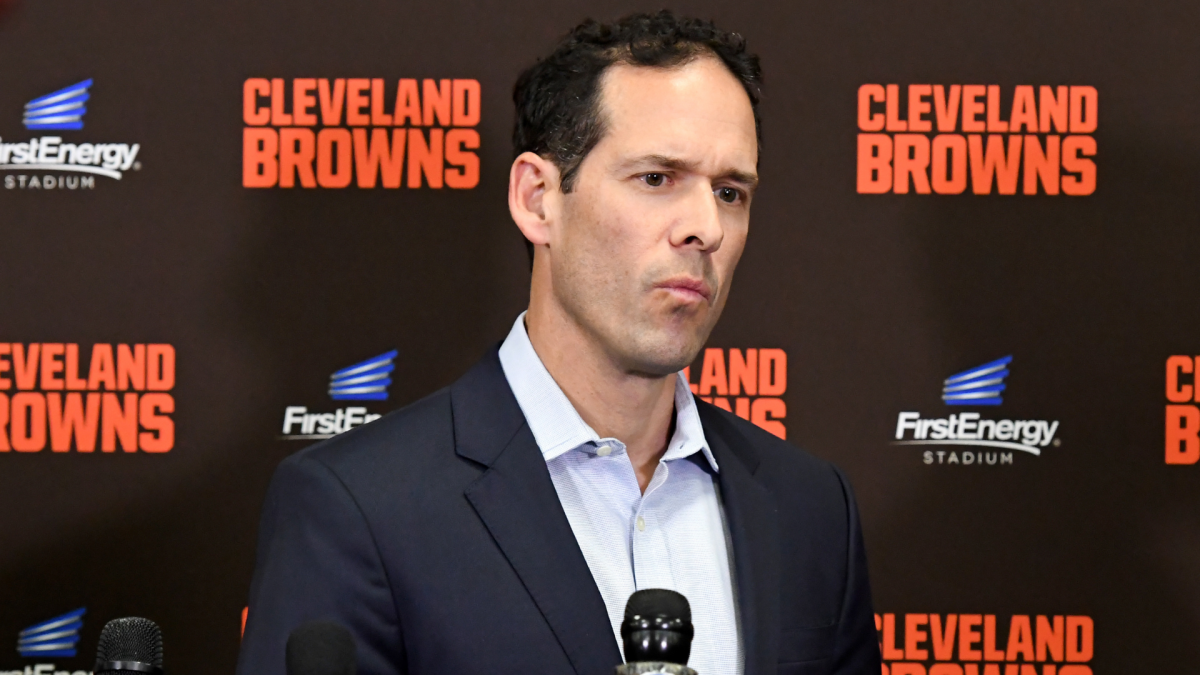Copyright CBS Sports

The Colorado Rockies, fresh off a 119-loss season that ranks as one of the worst showings in modern MLB history, are hiring Cleveland Browns executive Paul DePodesta to front their baseball operations department, according to The Athletic. DePodesta is, of course, no stranger to how baseball works. He was a key member of the Moneyball Oakland Athletics brain trust (actor Jonah Hill portrayed a fictionalized version of him in the film adaptation), and a direct predecessor of the modern general manager. DePodesta himself guided the Los Angeles Dodgers for a time as GM before later serving in lesser roles in various front offices. He left for the Browns and the National Football League nearly a decade ago, in January 2016. Now, DePodesta is headed back to MLB with a whopper of a challenge ahead of him. Returning the Rockies to any kind of competitive legitimacy might be the tallest task in the majors. That's not just because of Colorado's recent results -- though the Rockies have lost 323 games in the past three years -- but also because of variables that extend beyond the poor quality of the big-league roster. Here are three particular hurdles that await DePodesta. 1. Modernizing the Rockies No organization inspires more stories that sound downright apocryphal than these Rockies. If even some of the whispered tales are true, DePodesta's first couple of years in Colorado will include internal overhaul: in personnel but also, just as importantly, in infrastructure and philosophy. The Rockies are seemingly far, far behind even the average MLB front office in technology and analytical capabilities. What does that entail? It can range from internal projection systems to game reports to kinesological models that evaluate mechanics and beyond using force-plate and limb-tracking data. If this all sounds way more involved than sorting by on-base percentage, that's because it is; this isn't Moneyball anymore. Modern front offices aren't concerned with the art of an unfair game; they're obsessed with the science required to master it. Ramping up those internal systems takes manpower, time and money, but it can be done with the proper intent and resources. The Baltimore Orioles are just one recent example of a franchise that had to build itself up from within; this season aside, they serve as the blueprint for these Rockies. 2. Taming Coors Field One of the basic plots in literature is man versus nature. The Rockies, moreso than any other team in any other sport, find themselves brawling it out with their environment on a daily basis throughout the season. The Colorado altitude causes the baseball to fly differently and, even with generous use of the humidor, the Rockies still have to contend with the least favorable pitching ballpark in the majors. (Statcast's park factors have Coors Field generating 9% more offense than any other stadium.) For years, the Rockies' thought on the pitching side seemed to stop at "sinkers." That's despite studies showing there was more to be unearthed. For instance, studies have shown certain kinds of breaking balls (harder sliders) were less impacted by the altitude than others. DePodesta and his charges will have to master the analytical and sports science aspects of Coors Field in order to identify and develop a pitching staff that's actually fit to compete -- to say nothing of thrive -- in such fierce conditions. It's not just the pitching staff that will need DePodesta's help, either. Keep in mind that these Rockies ranked 29th in the majors in runs scored in 2025 and 20th in 2024. Building an inept offense in Coors Field when judged by non-adjusted statistics would seem impossible. But then, there's a lot that these Rockies have done over the years that beggars belief. 3. Scaling the NL West DePodesta won't just have to slay internal dragons. He also must find a way to outcompete some tough competition in the National League West. The Los Angeles Dodgers might be the best managed franchise in professional sports history, all things considered. They've won 12 of the last 13 division crowns and, between their nearly unmatched financial might and cutting-edge evaluative tools, it's hard to envision them falling off anytime soon. The rest of the division includes three teams -- the San Diego Padres, San Francisco Giants, and Arizona Diamondbacks -- who are at least generally competitive. The Padres will be seeking their third consecutive playoff berth for the first time in franchise history, while the D-backs are only a few years removed from winning the NL pennant and the Giants from their shocking 107-win season. The beauty and agony of baseball is that a lot can change over a short period of time. DePodesta, realistically, cannot be expected to turn the Rockies around in the next few years. This looks like a five-year job kind of situation. By then, who knows what the lay of the land will be in the NL West. Besides, DePodesta will have already done yeoman's work if and when he's able to concern himself with something other than the problems that need fixing within the Rockies organization.



